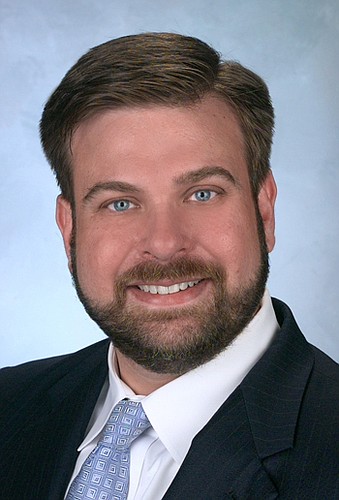
I now have two children in college, each of whom is bright, inquisitive, and neither of whom has yet identified a specific career plan. My third is a high school drama major.
While no child has yet admitted it, the thought exploded in my head the other day: Crap! They're going to be lawyers!
My kids have the misfortune of being able to recall only the recent past, in which my practice has actually paid for both the electricity and our choice of breakfast cereal. They were too young to remember the salad days of my law practice; yet they still see their dad working far into the night and much too early in the morning.
I had thought that my bad moods and ranting would turn them off, but apparently it just ingrained in them the kind of sickness that draws one to law school. In other words, they tend to argue back.
I now have the sneaking suspicion that at least one of the little darlings will continue in school long enough to spoil those plans my wife had for European vacations.
In reality, it makes me proud that any of them might want to enter the profession I love so much. But the law has changed over the last 20 years. The 1980s large firm with a pyramid style system of training associate attorneys is all but gone.
In law school, most of my classmates could reel off the names of a dozen large Florida law firms, and brown-nose their way into choice clerkships. Today, while we still have some larger law firms, the structure of those firms has changed.
While it's convenient to just blame the increase in the number of law schools, the real problem is with the structure of the profession. Yesteryear's firms were heavy with associate attorneys, but now have moved increasingly to an "eat what you kill" structure.
Clients now realize that they generally get a better deal using attorneys who bill at higher rates, given the fact that other attorneys take much more time to complete most tasks, especially with technology that permits quicker researching and organization. Paralegals have largely taken over many associate duties.
It's becoming harder and harder for new associates to get starting jobs, and too many are starting practices on their own or with other new attorneys, where they are not getting the guidance and support they need to develop into good lawyers.
For those of you wise enough to scare your kids away from the practice, you may be asking "so what?" Even if you aren't dreading the prospect of a poorly employed child, the change in our profession's structure poses problems for all of us. Not only have we seen rising concerns regarding professionalism issues from attorneys who have not been mentored, we should also have concerns that the public is not being well represented by our profession when newer attorneys have not received adequate training.
Simply put, the profession gets a bad name when our members are not fulfilling their jobs, and many of the young attorneys simply do not have the background or the structure necessary to evaluate their cases and make sound decisions on behalf of their clients. At the same time, senior lawyers find themselves stuck with greater personal stress, having lost the ability to shift responsibility to a pyramid of junior lawyers.
The Jacksonville Bar is beginning to realize that we need to focus on smaller firms and new practices. Our solo and small firm practice committee is planning a "starting your own law firm" seminar in the upcoming year. Additionally, The JBA has been active in promoting our mentoring program, which pairs newer attorneys with more experienced lawyers.
While these efforts are not enough to greatly affect some of the structural problems in the legal profession, they do represent an important step. It is my hope that The Florida Bar develops a more formal mentoring process, adding a fourth year to the legal education that would be spent either in public service or in a formal mentorship program.
I don't think that the answer is to reduce the length of legal education, like some advocates of eliminating the "wasted third year" of law school claim. Rather, I think that our response should be to make our educational process more rigorous and longer, with a final year clerkship similar to a medical residency program.
I hope that the national and state Bars and the law schools take a hard look at our profession's structure, and come up with some strategies to ensure that our next generation of bright young lawyers gets the chance it deserves.
The reality is that all of us need to be involved in searching for solutions to the increasing problems of young lawyer training.